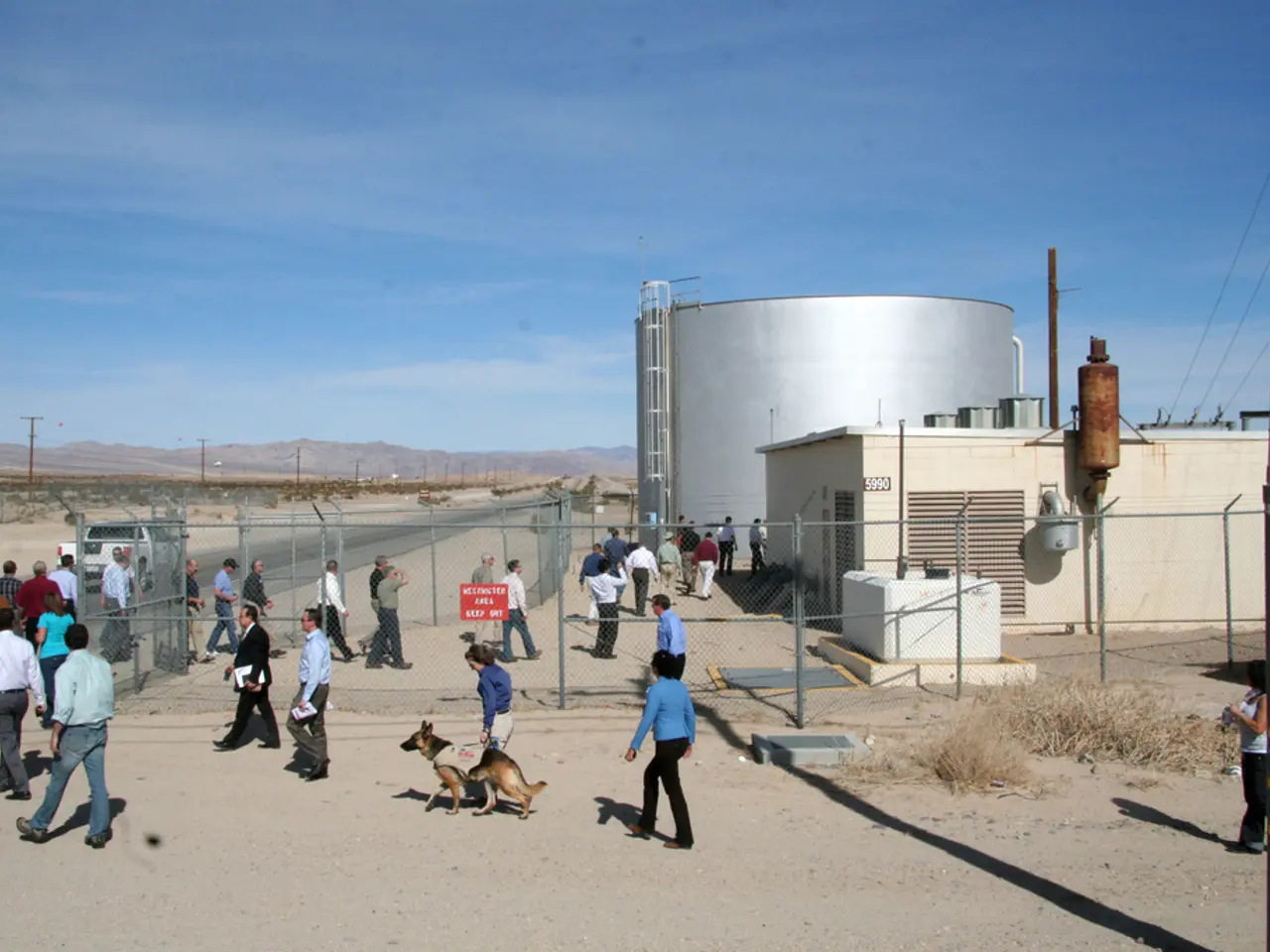Simplifying Agriculture: Rainer's Planned Easing of Fertilizer Regulations
Agriculture Minister Rainer plans to relax crop specifications regulations. - Agriculture Minister Advocates for Loosening Fertilizer Regulations
In a bold move to minimize red tape and boost farm efficiency, German Federal Minister of Agriculture Alois Rainer has declared his intentions to lighten the burdensome fertilizer regulations. Overly detailed records have long been an annoying impediment for farmers, with German rules even surpassing EU requirements.
This easing stems from the promise made by Rainer's coalition: to tackle excessive bureaucracy hampering economic growth. The Minister sees these restrictive regulations as the main hindrance and wants to toss them aside, declaring, "Enough's enough!"
Introduced in 2018 by the previous grand coalition, the nutrient balance ordinance mandates businesses of a specific size to diligently record inputs and outputs of nutrients, such as those from animal feed and manure. These measures were an attempt to address ongoing disputes with the EU Commission over nitrate-polluted groundwater in many German regions. Consequently, Germany had been penalized by the European Court of Justice.
Minister Rainer preceded Cem Özdemir (Greens) as Federal Minister of Agriculture. Özdemir had planned further reforms of the fertilizer law in 2023, which eventually resulted in the EU Commission dropping its proceedings. However, the ensuing law change encountered resistance from the federal states and failed to materialize. Now, Rainer plans to abolish the nutrient balance ordinance entirely.
Industry and environmental associations, such as the Federal Association of German Energy and Water Industry (BDEW) and various environmental groups, have strongly reproached Rainer's decisions. They argue that he plans to "fast-track" the abolition of the nutrient balance regulation without a suitable replacement mechanism, endangering the cause of water protection. Instead, they call for a development and digitization of the individual farm's nutrient balance.
Key Players:
- Alois Rainer, Federal Minister of Agriculture
- CSU
- EU Commission
- Federal Ministry of Agriculture
- EU
Insights:
- Bureaucracy Reduction and Farm Efficiency: The proposed changes aim to reduce the administrative burden on farms, potentially saving them approximately €18 million annually in administrative costs. Additionally, it seeks to provide family-run farms greater planning security and improve their competitiveness [Source: 1].
- Water Quality Implications: Critics fear that scrapping the nutrient balance requirements could worsen groundwater protection, particularly concerning nitrate pollution, without a new monitoring mechanism in place. While the nutrient balance ordinance was a crucial tool in preventing excessive nitrogen and phosphorus losses, the lack of an adequate replacement mechanism increases the risk of nutrient runoff and its negative impact on water quality [Source: 1].
- Summary of Implications:| Aspect | Implications ||-----------------|-------------------------------------------------------------------------------------------------|| Water Quality | Experts voice concerns over increased nitrate pollution and deteriorating groundwater quality without new controls [Source: 1] || Farm Efficiency | Reduced administrative burden, better planning security, and strengthened competitiveness for family farms may result [Source: 1] || Bureaucracy | Proposed relaxations would lead to less complex fertilization documentation and paperwork [Source: 1] |
In essence, the proposed changes aim to benefit farm efficiency and decrease bureaucracy, but their impact on water quality protection must be reconsidered in light of the absence of a suitable replacement mechanism for nitrate monitoring [Source: 1].
[1] Enrichment: https://www.agrofera.de/88243-de/einfache-dungerabatt-forderungen-kritisieren-bund-und-umweltorganisationen-furs-uhdungstauern-einem-schlichten-erlass-und-die-ebener-eingeführten-nährstoffabgaben-zeugnisse-haben-die-grundlage-gegeben-für-einen-deutlichen-niedrigenertrag-der-trübung-der-grundwasserqualität-in-manchen-bereichen-wenn-die-nährstoffabgaben- seit-dem-18.~-millionen-euro/
- Amidst the plan to ease fertilizer regulations by Alois Rainer, discussions surround the potential impact on environmental science, particularly regarding climate-change and the environmental-science aspects of the EU's policy-and-legislation towards water quality.
- Critics argue that the proposed abolition of the nutrient balance ordinance, without a suitable replacement mechanism, could endanger the cause of water protection, contributing to issues like nitrate pollution and deteriorating groundwater quality.
- The key players involved in this debate include Alois Rainer, the EU Commission, and various environmental organizations, each advocating for their respective concerns in the realm of general-news, politics, and science.





